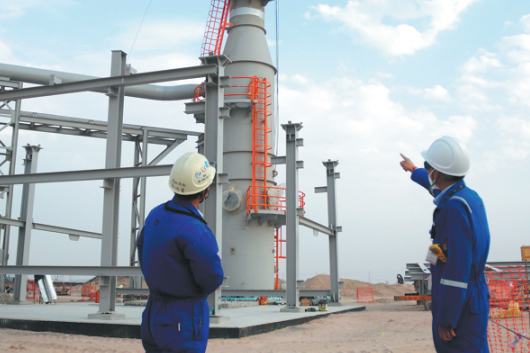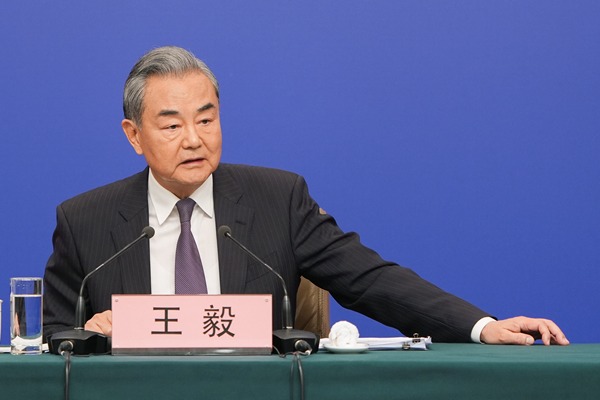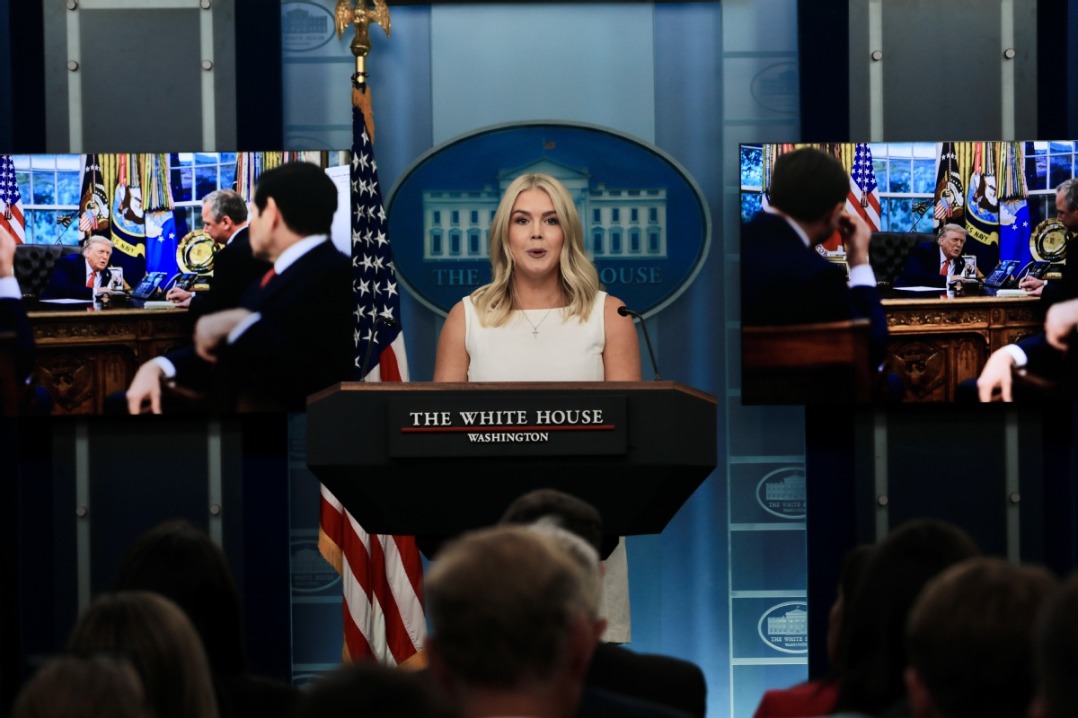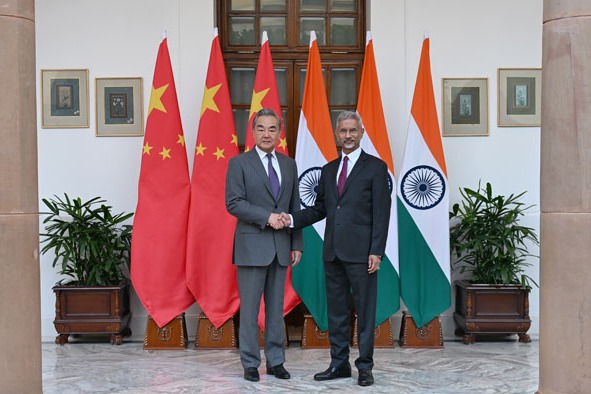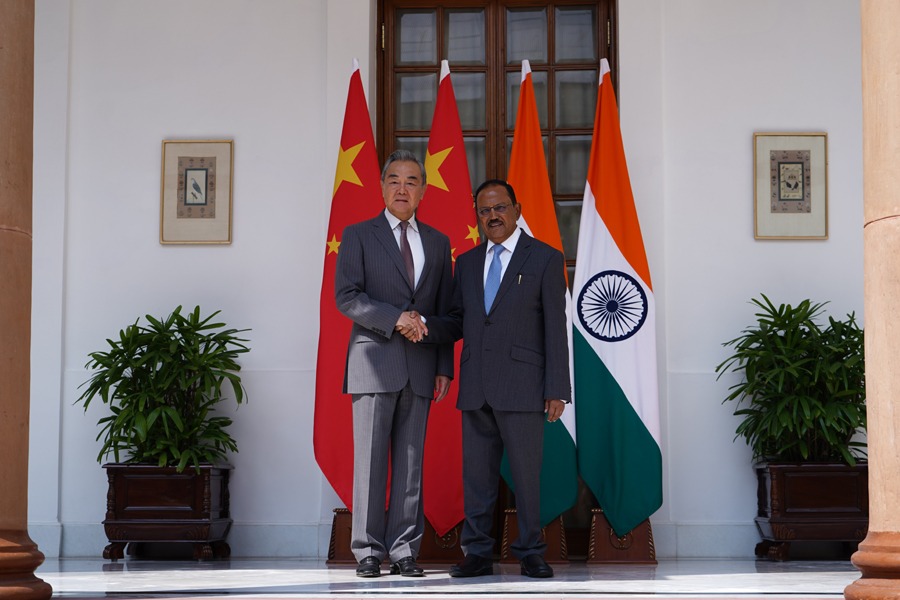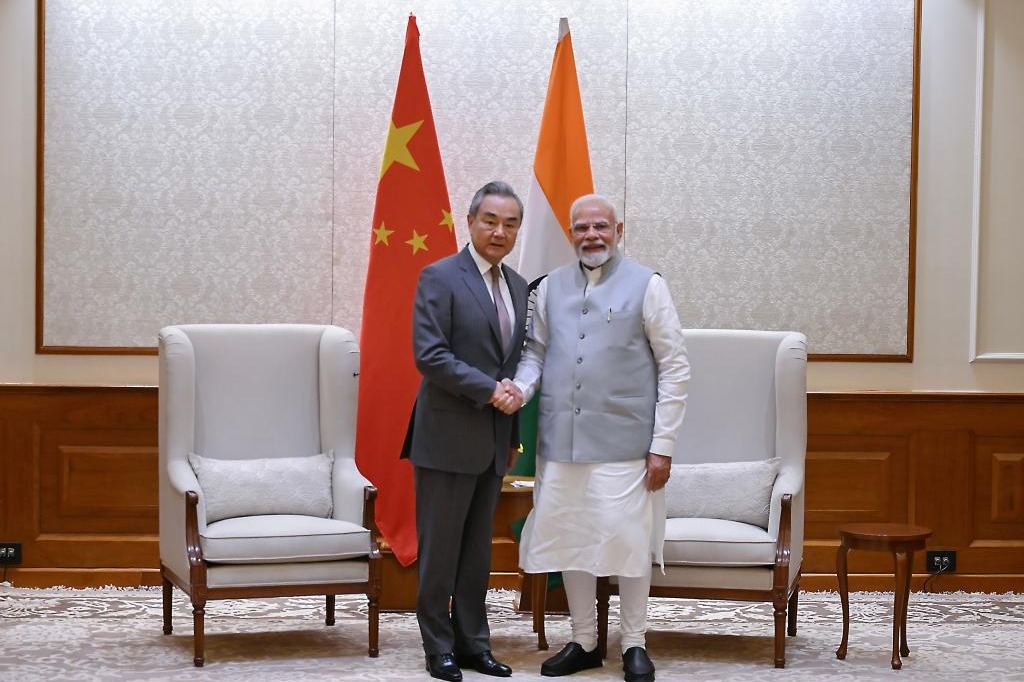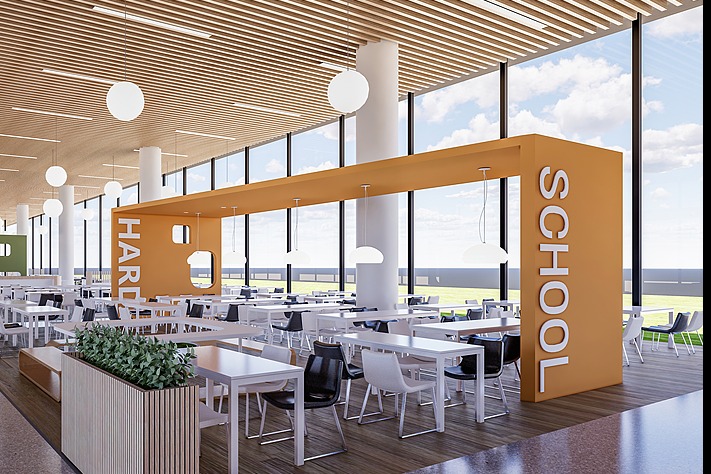Gulf embraces 'green pace' movement

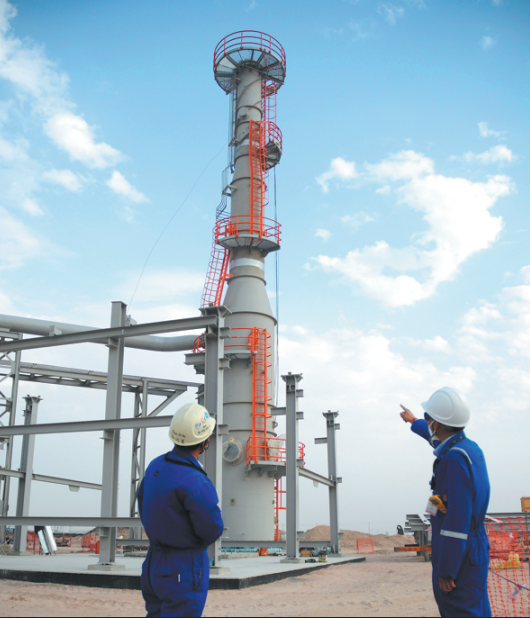
"What does coral cultivation entail?" "What's the ideal temperature for coral growth?" These were among the questions raised during a public welfare event marking the 17th World Oceans Day in Dubai, the United Arab Emirates.
Titled "Reef Revival: A Mission to Protect the Blue Heart of the Earth", the event brought together over 40 Chinese and UAE volunteers on June 13, a few days after the international community celebrated World Oceans Day on June 8.
At the event, participants watched videos on coral cultivation and marine conservation. They also headed to the shoreline near a project site for a coastal cleanup, removing plastic waste and debris from a 6,000-square-meter stretch of beach.
The gathering took place at the Hassyan Desalination Project site near the Jebel Ali Wildlife Sanctuary, one of Dubai's few remaining pristine coastal areas. It was organized by PowerChina's Middle East and North Africa, or MENA, regional headquarters along with local partners and environment institutions.
"This is my first time getting up close to seawater desalination — it's fascinating and incredibly meaningful," said local student Leila Diyari. "It is vital in securing water supplies and protecting the environment."
Ali Al Suwaidi from a Dubai-based NGO focused on marine environmental conservation said: "I learned why protecting species like sea turtles matters, and how to do it. Every small action counts."
Undertaken by Shandong Electric Power Construction Corporation III, a subsidiary of PowerChina, the Hassyan Desalination Project is set to be completed in 2027. Once operational, it will produce over 810,000 cubic meters of fresh water daily, supplying drinking water to nearly 2 million people in this arid region.
Safeguarding ecosystem
Li Yang, who oversees environmental protection for the project, said the company adopts green principles to minimize impact on the surrounding ecosystem. "We've relocated over 20,000 corals in the area to undisturbed parts of the construction zone, and safely transferred fish from lagoons near the site," he said.
Along the coast, the team has adjusted construction schedules to avoid sensitive periods, such as sea turtle nesting seasons (March to June), and partnered with environmental groups to protect turtle habitats. "We arrange professionals to transfer the sea turtle eggs to the incubation area. After the hatching is completed, we will release the newborn baby turtles back into the sea," Li said.
"Our team patrols the beach every day. When we find sea turtle nests, we protect them with iron enclosures," said Maria, a volunteer, describing the measures in place.
Before joining this project, local employee Rafat Abdullah said his knowledge of China was limited to books and his experience with Chinese products.
"Through working with Chinese colleagues, I have gained more understanding of China. I hope we can see more and more such projects here under the Belt and Road Initiative," Abdullah said.
Li Junqi, vice-president of PowerChina's MENA operations, said: "Protecting marine ecosystems is both a responsibility and a key step toward ecological improvement. As a Chinese enterprise, we're taking the initiative to safeguard the environment, collaborating with local organizations to build a better shared home."
While Chinese enterprises are safeguarding marine ecosystems in the UAE, elsewhere in the Gulf region, they are tackling another critical challenge: energy pollution.
For decades, Iraq's oil and gas sector — the nation's economic lifeline — has taken a toll on the environment. Gas flaring, the practice of burning off excess gas from oil production, became a persistent blight. Over cities like Basra in the south, thick smoke clouds enveloped the air, harming local residents. The World Bank reported that Iraq wasted nearly 17 billion cubic meters of natural gas annually through flaring.
'Blue sky projects'
A series of practices led by Chinese enterprises, dubbed "blue sky projects" by Iraqis, are turning the tide, curbing pollution while addressing chronic energy shortages.
Central to this shift is the Basra Natural Gas Liquids project, built by China Petroleum Engineering and Construction Corp, or CPECC, which captures and processes associated gas from three major oil fields.
"Every cubic meter of gas we process is one that won't be flared into Basra's sky," said Sun Baojun, the project manager. His facility now produces 4.4 million cubic meters of dry gas and 2,600 metric tons of liquefied petroleum gas daily — enough to power nearby communities long plagued by electricity shortages.
Wang Xianghui, senior vice-president of CPECC Middle East Branch, said that embracing green development is a fundamental social responsibility for companies involved in high-quality advancement of the Belt and Road Initiative.
In the nearby West Qurna 1 oilfield, where outdated flare stacks once spewed "black smoke", change is tangible. A newly-operated degassing station has nearly eliminated such smoke — an outcome hailed by locals as a big achievement.
Hasan Hanoon, a 35-year-old Iraqi engineer at West Qurna 1, has witnessed the transformation firsthand. "The smoke used to harm locals badly. Now Basra's air is so much cleaner," he said. "Working with the Chinese enterprise, I've seen the oilfield change, and I've come to admire China's speed, strength, and spirit through my role in the Belt and Road Initiative. Iraq-China cooperation has truly improved our lives."
Iraqi officials see these projects as a new chapter for industrial development. Hayan Abdul-Ghani, the deputy prime minister for energy affairs and oil minister, recently visited West Qurna 1, praising Chinese energy firms for their "outstanding contributions".
"These projects are not just economic successes but also environmental victories," he said.
Cai Kaiping, the project's subsurface manager, said: "We once took Iraqi colleagues to visit Daqing, China's largest onshore oilfield. Its garden-like environment left them a deep impression, strengthening their confidence in our partnership."
From Dubai's coral-friendly desalination efforts to Iraq's smoke-free oil fields, these initiatives are more than infrastructure — they are trust-builders, proving that the BRI thrives on green action and people bonds.
Zayed bin Aweidha, CEO of Abu Dhabi Investment Group, said China is bound to play an important role in promoting global economic recovery, with the initiatives in the Gulf region contributing to the process.
"China's cutting-edge technologies and infrastructure expertise complement our needs perfectly. Regional investors are optimistic about the Chinese market and eager to explore new win-win cooperation models," he said.
Xinhua contributed to this story.
cuihaipei@chinadaily.com.cn

















